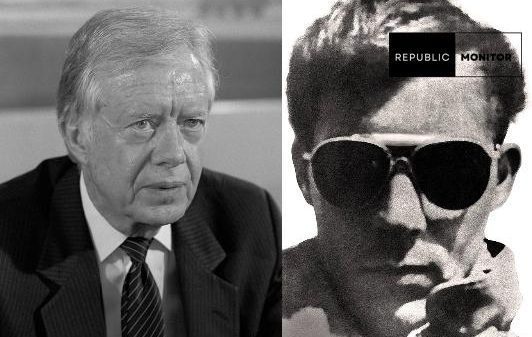After Governor Gavin Newsom signed Assembly Bill 360 into law, California became the first state in the US to prohibit the use of “excited delirium” as a cause of death on coroners’ or autopsy reports. The Antioch police laid on his neck and he died, and they wrote on the death certificate that he died of excited delirium, which is incorrect

California’s Angelo Antioch Quinto Act: Ending the Use of ‘Excited Delirium’ as a Cause of Death
Assemblyman Mike Gipson introduced the bill in honour of Angelo Quinto, 30. Who perished when Antioch police responded to complaints of a mental health emergency in December 2020?
“I’m in this space because of Angelo Quinto.” “It’s because a US Navy man had a mental health issue and police were called,” Gipson explained. “The Antioch police laid on his neck and he died, and they wrote on the death certificate that he died of excited delirium, which is incorrect.” It has an effect on us.
Quinto’s family described the time the bill was signed into law as “even more emotional.” Because it happened during his sister, Bella’s, 21st birthday celebrations.
“It felt like he was trying to give us a birthday present,” Bella told me.
Quinto’s stepfather described their reaction to the news as “bittersweet.”
“You’re happy because you’ve worked so hard for it.” It implies that Angelo’s death was not in vain in any sense, according to stepfather Robert Collins. “You’re attempting to look at something resembling justice. But he’s no longer alive, which reminds you why he’s pushing for it.”
Quinto died in 2020 after officers knelt on his neck for five minutes, according to his family. His death was judged an accident by the coroner, who stated that he died of enthusiastic delirium. Even before the statute was passed, the American Medical Association rejected the word as a genuine cause.
“It forces, now, the medical examiner’s office to actually conclude scientifically how a person died,” Mr. Gipson said. “We want to ensure that bad officers are no longer in positions to harm people.” Let’s call it what it is if people make mistakes. But don’t invent something only to cover your tracks, and that’s all we’re asking.”
Ending the Controversial Use of ‘Excited Delirium’ as a Cause of Death
Excited delirium is no longer a recognised medical diagnosis that can be used on a death certificate or an autopsy report. The National Institutes of Health defines the phrase as follows:
Excited (or agitated) delirium is distinguished by agitation, violence, acute distress, and unexpected death, which occurs frequently in the pre-hospital context.
“Even if you consider excited delirium to be a valid medical diagnosis.” “My brother did not show any of the symptoms that are commonly associated with it,” Bella Quinto explained. “It’s been very simple for law enforcement, sheriffs.” And coroners have historically relied on that diagnosis to clear officers of misconduct.”
According to Collins, it is an opportunity to increase accountability and openness in the process.
“This is about a system that tries to avoid accountability and that we’re trying to dismantle because accountability is required for legitimacy.” “And anyone who claims that police accountability is unnecessary is not pro-police,” Collins remarked.
The family is proud and grateful for the bill’s near bipartisan support before it reached the governor’s desk.
“It’s something so rare in politics today when we have so much division,” he remarked. “And a chance to see if there are common ways in which we can bring transparency and accountability back to policing.”
Angelo Quinto’s family has filed a lawsuit against the Contra Costa Sheriff’s Department for using enthusiastic delirium as a cause of death. They also want the matter reopened and reexamined. They claim to be fighting for other families who have gone through something similar.
















